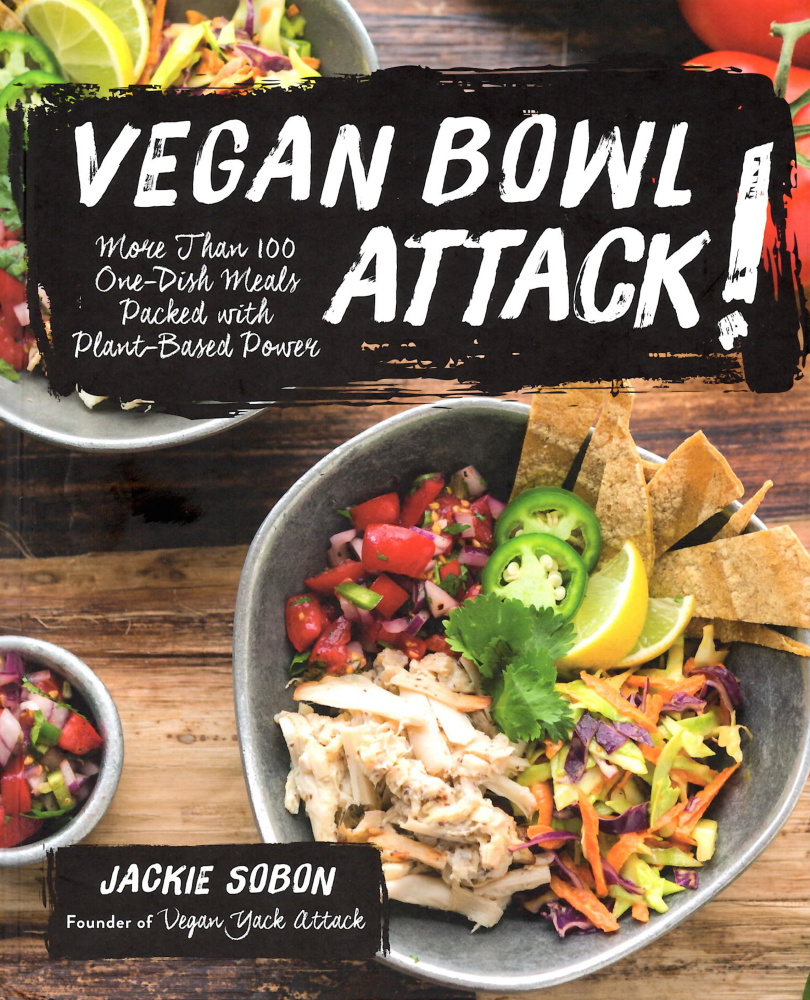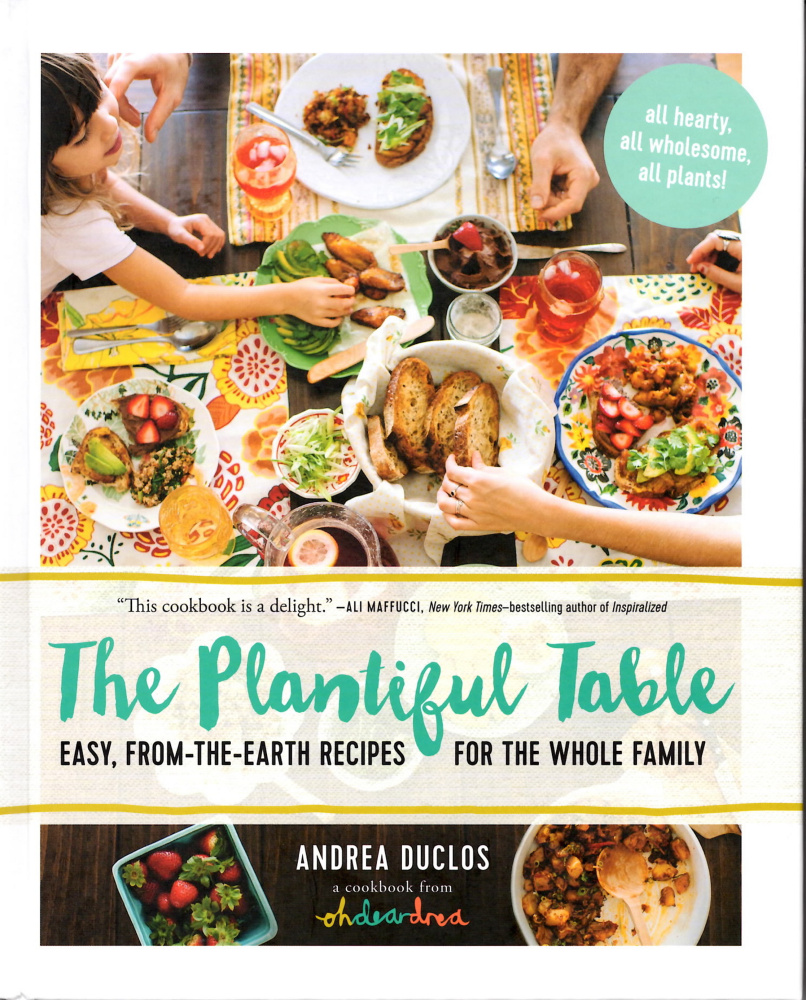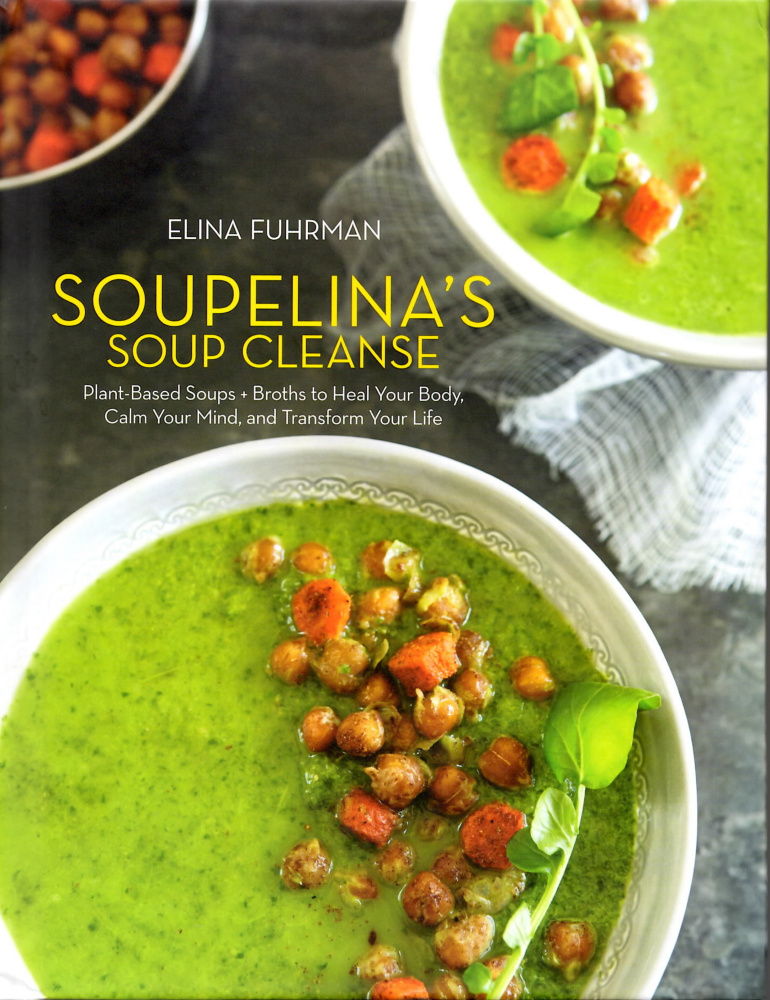Picking a vegan cookbook used to be easy. There were so few on the market and no guarantee your local book shop would stock even one. If you chanced upon a vegan cookbook, you bought it. Easy.
Contrast this to today, when so many vegan cookbooks are being published, the cup hasn’t just runneth over, it has flooded the kitchen. Whether you want something hot off the press or tried and true, bookstores now have multiple shelves devoted to the books. As a result, picking one is much more challenging.
Amazon lists 5,775 vegan cookbooks in its catalog. Two years after it was published in 2014, vegan cookbook “Thug Kitchen” remains on Amazon’s top 100 best-selling books list.
“We’ve noticed a lot more vegan cookbooks,” said Martha Holmberg, CEO of the International Association of Culinary Professionals, which presents prestigious cookbook awards each spring. She says the growing number of vegan cookbooks reflects the growing number of people eating – but more importantly – “exploring” plant-based foods.
These explorers are the key to vegan cookbook sales, since surveys find full-time vegans account for no more than 3 percent of the U.S. population. These non-vegans who eat vegan food – and buy vegan cookbooks – are often called flexitarians, semi-vegetarians or veganish.
Matthew Lore, publisher at The Experiment, a small press in New York City, said many parents today cook more healthful food than what they grew up eating, which “means an ever-growing market for books on cooking healthfully for the whole family.”
The Experiment regularly publishes vegan cookbooks. In 2011 it published the best-seller “Forks Over Knives,” based on the vegan documentary of the same name, followed in 2012 by the bestseller “Forks Over Knives: The Cookbook.” Together the two titles have sold an impressive 735,000 copies, according to Lore.
Lore said the books and the film “raised so many consciousnesses all at once,” and created even more people seeking plant-based recipes and cookbooks.
At Boston-based Da Capo, an imprint of Perseus Books and a long-time publisher of vegan cookbooks, editorial director Renee Sedliar first witnessed the gathering strength of the vegan cookbook category in 2005 with the publication of “Vegan with a Vengeance” by Isa Moskowitz. It was re-issued last year.
“Isa really brought vegan to the fore,” Sedliar said. “She and her partner in crime Terry Hope Romero showed that vegan food wasn’t about denial or ‘dirt sandwiches.’ ”
Moskowitz and Romero have written many vegan cookbooks, solo and together. Next year, Da Capo releases a 10th anniversary edition of the duo’s “Veganomicon” from 2007, which continues to be a top seller today.
Lore first published a vegan title in 2002 when he was with the Avalon Publishing imprint Marlowe & Company. It was Amanda Grant’s “Fresh and Fast Vegan.”
“Very few vegan cookbooks were being published at the time,” Lore said. “As you know, the category has exploded since then.”
Because the market is now so crowded, most new vegan cookbooks have a narrow focus on a particular cuisine, food preparation technique, type of dish or specific ingredient. The quality of today’s vegan cookbooks is also up and many – with high-quality paper, attractive design and beautiful photographs – are now worthy of a coffee table spot. For further proof of the market’s abundance, I need look no further than the teetering stack of vegan review copies growing on my kitchen counter.
So we’re back to the problem at hand: Which vegan cookbook to pick?
To help you sort through the bounty, here’s a peek at my summer reading list plucked from my stack of review copies.
When you need a laugh with a side of spice, go for “The Taco Cleanse: The Tortilla-Based Diet Proven to Change Your Life,” by Wes Allison, Stephanie Bogdanich, Molly Frisinger and Jessica Morris (The Experiment, $17.95, trade paperback, full-color photos). It is a spot-on roast of cleanses and detox diets but with actual recipes for every vegan taco dish ever invented – or at least close.
With the attitude that “Today I am smart enough to choose a taco-based lifestyle,” the book lays out a plan for eating tacos three meals a day, and, of course, taco journaling. Along with cheeky references to “vibrations” and “taco scientists,” the book dishes up recipes for corn, wheat flour and plantain tortillas.
Then come an inventive array of plant-based taco fillings, such as beer-battered portobellos, minimalist nacho cheese, blue corn-chip crusted tofu and quick chipotle beans for imperfect people (which uses canned beans and canned chipotle because the cleanse “isn’t about perfection, it’s about eating tacos). Finally, the book serves up both conventional and unusual taco dishes, such as tater tot-cho tacos; supreme “bacon,” scramble and cheese tacos; and inspiring churro-waffle tacos.
A handful of margarita and sparkling water recipes finish off the book. This book is a must-have for taco lovers, vegan or otherwise.
The only logical chaser to such a cookbook is “Soupelina’s Soup Cleanse: Plant-Based Soups + Broths to Heal Your Body, Calm Your Mind and Transform Your Life,” by Elina Fuhrman (Da Capo Long Life, $24.99, hardbound, full-color photos). No tongue-in-cheek here. Instead the soup recipes (and the soup delivery company by the same name) were born when the author was diagnosed with cancer and seeking a way to heal.
The book advocates primarily cooked, organic soups and urges readers to stop counting calories and start counting nutrients.
Before the recipes, Fuhrman ladles out health information, including sections on Ayurvedic medicine, traditional Chinese medicine, folk remedies and healing foods. Her cleanses feature soup at each meal and vegetable broth garnished with fresh herbs for snacks. The recipes cover much ground, with pureed soups highlighting a prominent ingredient – such as fava bean, kabocha squash, asparagus or yellow tomato – and chunkier concoctions, such as lentil soup, quinoa chili, mushroom leek soup and bok choy vegetable soup.
The book wraps up with a selection of recipes for broths and raw soups. The book’s extensive health information will appeal to those in need of healing.
My next pick isn’t a cleanse, but it is certainly on trend in that it dives into the popularity of meal bowls. “Vegan Bowl Attack! More than 100 One-Dish Meals Packed with Plant-Based Power,” by Jackie Sobon (Quarto Publishing Group, $22.99, hardbound, full-color photos) is the work of the Vegan Yack Attack blogger, who happens to be a food photographer.
Her basic bowl formula is grain + vegetables + protein + sauce, but her recipes go far beyond the basics. Think: biscuit nacho bowl, “fish” taco bowl, aloha bowl, meze fusion bowl, orange cauliflower soba chow mein bowl and seitan satay bowl with peanut sauce. Sobon’s recipes also include soups (tempeh stout chili), appetizers (baked onion rings with barbecue and smoky tahini sauces), breakfast (loaded potato breakfast bowl) and dessert (mint chocolate chip doughnut sundae).
Versatile vegan sauces, including cheezy cheddar, quirky marinara, smoky tahini and date caramel, round out the recipes. The book has little introductory material so is best suited to cooks ready to dive into the recipes.
“V is for Vegan” by Kerstin Rodgers (Quadrille, $29.95, hardbound, full-color photos) takes a more comprehensive look at vegan food, offering a number of vegan recipe standbys, such hummus and cheesy popcorn, while adding many unique, unusual dishes, such as beet pelmeni with herb and walnut filling and smoky salmorejo with basil oil.
The cookbook is the latest from the blogger and chef credited with launching the pop-up restaurant movement in Britain. It includes extensive information about ingredients and even a short history of veganism, which traces its roots to ancient Greece.
Rodgers includes recipes for many vegan pantry items – from vegan Parmesan to coconut whipped cream to pickled watermelon rind. The book’s British pedigree is visible in dishes such as light-as-air crumpets, but overall the recipes have an international flair. Both new vegans and those more familiar with the diet will appreciate this cookbook.
When feeding kids is part of your daily game plan, “The Plantiful Table: Easy, From-the-Earth Recipes for the Whole Family” by Andrea Duclos (The Experiment, $24.95, hardbound, full-color photos) is this summer’s best pick. Written by a blogger and mom living in South Florida, this book is spot-on for families wanting to put more vegetables on their kids’ plates.
The introduction provides plenty of tips and tricks (such as dice small, let the kids help, and limit sugar) and the recipes follow suit, dishing up everything from sourdough French toast with roasted fruit to lentil fritters and empanadas.
There is a whole chapter of smoothie recipes and even two recipes for making homemade dog food. (Both this book and “V for Vegan” include a section on toast toppings. I imagine it won’t be long before someone publishes a book dedicated to vegan toast.)
Parents will appreciate this book’s wholesome, plant-strong comfort food crafted to please picky palates.
Avery Yale Kamila is a freelance food writer who lives in Portland. She can be reached at:
avery.kamila@gmail.com
Twitter: AveryYaleKamila
Send questions/comments to the editors.





Comments are no longer available on this story